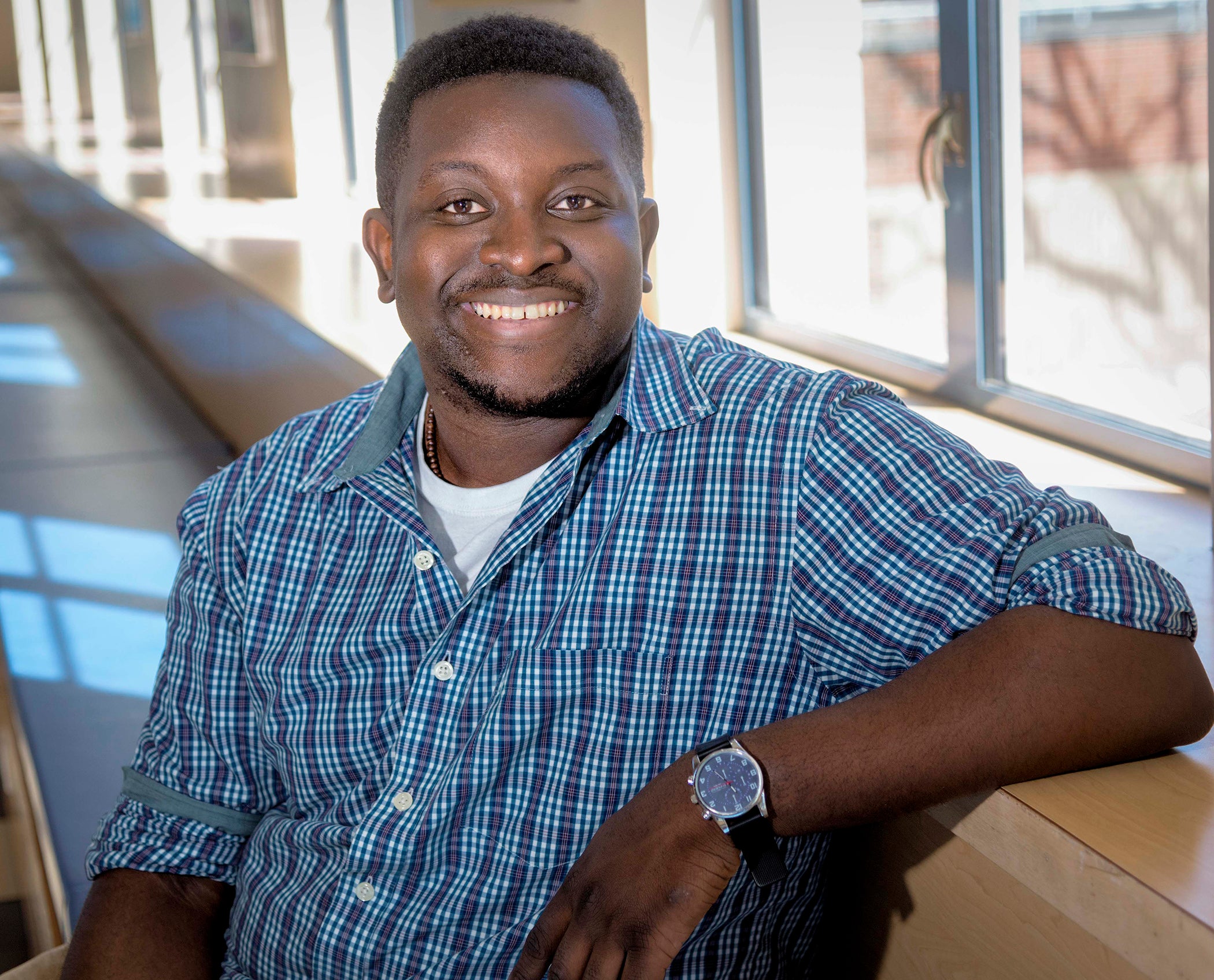KINGSTON, R.I., April 20, 2017—It was a welcome surprise: Engineering classes at the University of Rhode Island that involved hands-on projects, not only theory.
Back home in Senegal, Rassoul Diouf says it was rare for science students to step into a lab or make something from scratch.
“It’s mostly theory,” says the URI senior. “Knowledge is crucial, but so are tinkering and creativity.”
That opportunity to make things—a robotic arm, motion sensors, tablets that communicate with machines—is the reason he came to URI’s College of Engineering, and the reason he stayed.
In May, the 23-year-old Pawtucket resident will graduate with a bachelor of science degree in electrical engineering, capping off a college experience that has been academically and personally rewarding.
“It’s been great,” he says. “I’m surrounded by brilliant professors with valuable ideas to share, and I get to work on fascinating projects. I’ve learned so much.”
As a boy in Dakar, the West African country’s capital, Diouf excelled in math and science. With college approaching, he knew he had to leave his homeland to get a solid education in electrical engineering.
“I took physics and chemistry in high school, but we never had one lab,” says Diouf, who speaks French and Wolof, a language of Senegal. “It was clear that a college education in the United States would be better.”
At 18, he moved to Pawtucket to join his mother, Fatou, who had been living there for a decade. After two years at the Community College of Rhode Island, he enrolled at URI in 2015, with plenty of engineering courses under his belt.
His journey had begun. He lived in a residence hall—his first time boarding away from family—and soaked up campus life: hanging out with other international students, playing Frisbee and soccer at the Quad, working out at the Anna Fascitelli Fitness and Wellness Center.
He soon discovered that URI has an excellent program in signal processing, a field of electrical engineering that involves signals and systems. He missed Senegal—the stunning beaches, the delicious rice dishes, the 80-degree weather—but he had found a new home at URI.
“I can’t walk anywhere without saying ‘hi’ to someone I know,” he says. “URI is a special place for that—a real community.”
The practical experience that he sought did not disappoint.
As a URI science and engineering fellow last summer, he helped Kunal Mankodiya, an assistant professor of biomedical engineering, refine a robotic arm by programing it with a microcontroller and connecting it to Bluetooth.
Last fall, he continued his work with the robotic arm by adding a sensor that detects the motion of a human finger to control the arm’s movement. He also created and built a hardware-based computer game.
His senior capstone project with Siemens, a global manufacturing firm, was thrilling, Diouf says. He and his five classmates worked on designing an inexpensive iPad-like tablet that controls the operation of various machines.
“It’s very challenging to design a tablet from scratch,” he says. “You need to find parts that are separate and make them operate together. You get to see what being an engineer is like in the real world. Experience is so valuable once you get into industry.”
And it’s important to get that experience and make mistakes in college, Diouf says, before you’re working and possibly “asked to design a rocket to Mars.”
Diouf has excelled academically, too. He has been on the Dean’s List every semester, and this year he received the Saint Elmo Brady Award for Outstanding Achievement in Science from the URI Black Scholar Awards Committee.
After graduation, he might start a full-time engineering job or go to graduate school, possibly continuing his studies with Professor Mankodiya. Either way, he’s prepared for both.
“I want to make a contribution to the world,” he says. “I want to make a positive impact. At the end of the day what else would an engineer want to be doing? The field is wide open. It’s filled with possibilities.”
One thing he won’t miss if he leaves the region is the winter weather. Does he like New England winters? “No,” he says. “I learned how to be an engineer, but never learned how to deal with the snow.”

